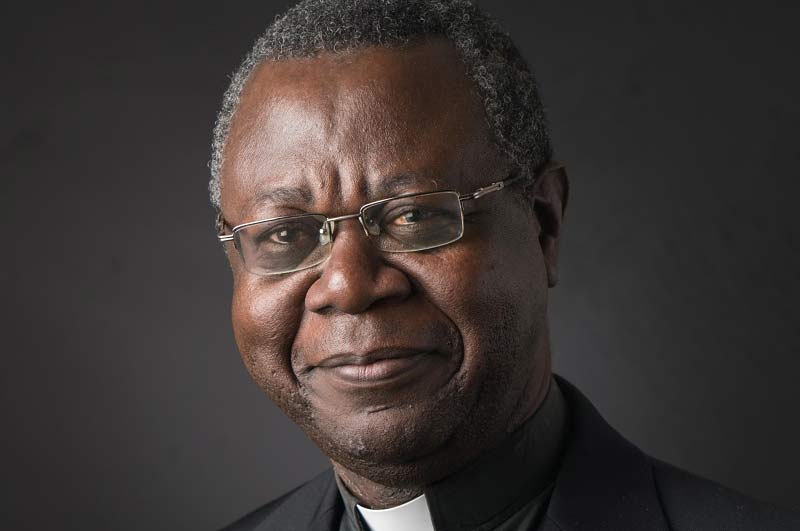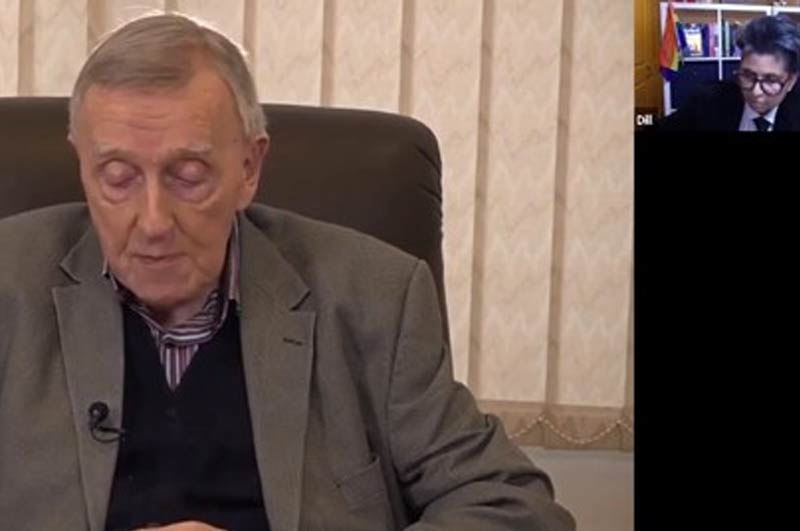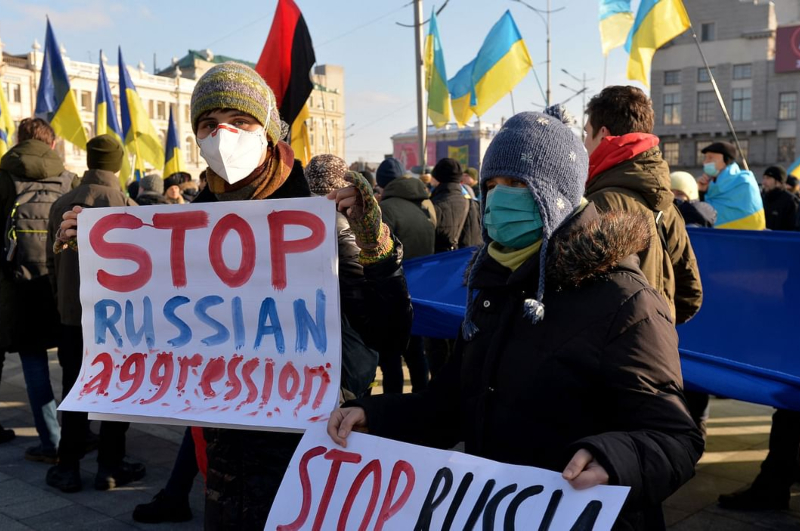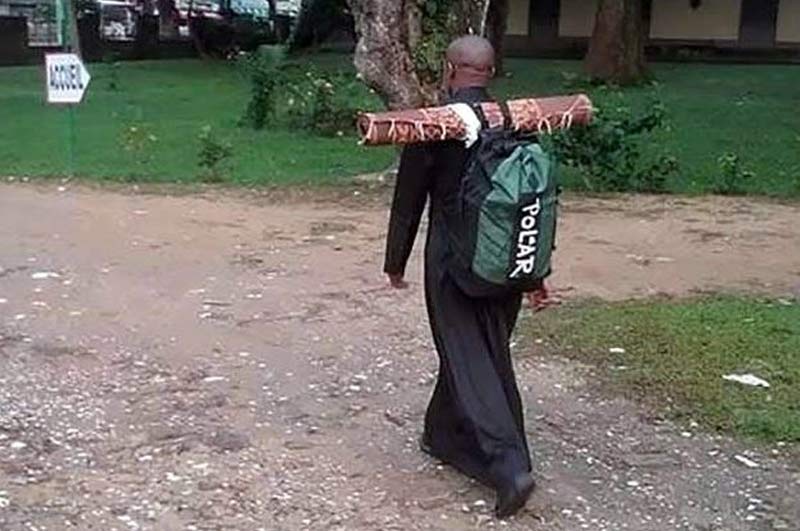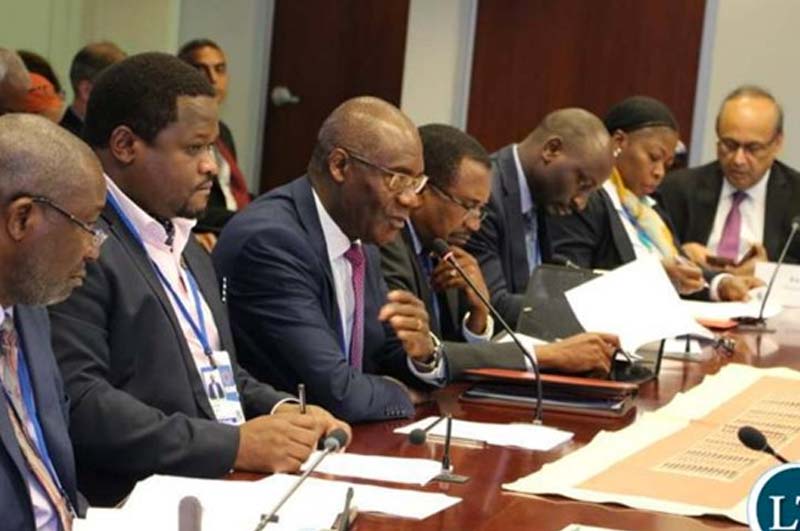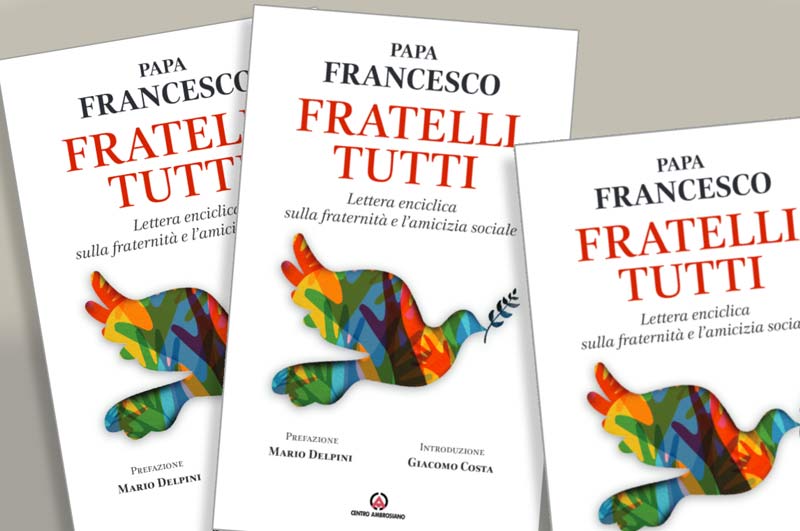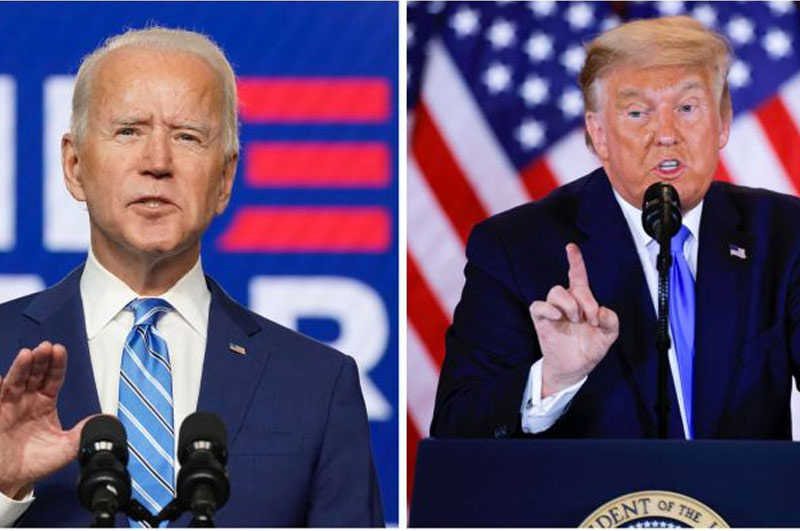


People in the United States tend to think not only that we perfected constitutional democracy, but we also take our institutional stability for granted. No matter how much we disagree with our elected leaders, rail against the inequalities of the market, or continue to divide ourselves into enclaves based on race and class, there remains embedded in the American psyche an almost Pollyannaish trust in the rule of law.
Authoritarianism and populism are problems for other countries. No matter how bad things are now, things will eventually return to normal. We take our founding myths as holy writ: the United States is not like other countries and Americans are not like any other people. That is the hubris of American exceptionalism, not only that we are different, but that we are better and smarter than the rest of you. We will figure this crisis out and weather the storm, simply because that is who we are. What in any other country would cause us to stand up and take notice, in our own we cross our fingers, hope for the best, and trust that the system will eventually right itself.
How dangerously naive that worldview is comes into focus when you can see it from the outside, when you can appreciate, as an American, what the U.S. looks and feels like from abroad. My vantage point is that of a U.S. Jesuit, an attorney by training, missioned to the Jesuit Justice and Ecology Network (JENA) in Nairobi, Kenya. Experiencing the closing months of the 2020 U.S. presidential election, definitely the most contentious of my lifetime, from the other side of the world has been eye-opening and has challenged me to reflect on the road ahead for my home country.
It is easy enough for most Americans abroad, myself included, to wag a sanctimonious finger at any number of African states and bemoan the health of their democracies. However, in the wake of the U.S. election we are called to consider what the deeper meaning of the results might be. Yes, Donald Trump was defeated at the polls, but the fact remains that in losing he garnered more votes for president than any other candidate in history – with the exception of the one who beat him, Joe Biden. More than 72 million Americans took a look at President Trump’s record, weighed everything he has said and done in the last four years, and ratified it by casting a ballot to give him a second term in office. This radical disconnect in visions of where the U.S. should be headed is not something that a change in administration alone will fix. The elephant in the room, the critically ill democracy that Americans are loath to recognize, is their own.
Americans are hard wired to think, “It can’t happen here.” Tanks in the street, violent confrontations between political partisans, or a head of state actively urging his supporters to be prepared to take up arms in his defense are things that only happen somewhere else. Never in its history has an incumbent U.S. president who has failed to be re-elected refused to commit to the peaceful transfer of power, or so cavalierly tossed around baseless claims of voter fraud to cast doubt on the legitimacy of the election itself. If this were simply the mad ranting, or tweeting, of the President that would be concerning enough. However, President Trump’s rhetoric is backed up by the refusal of the Republican establishment, including members of Congress, to stand up to him. It appears that those who have the power to check President Trump lack the courage, whereas those who have the courage lack the power.
Even though the Trump era is slated to end on January 20, 2021, with the inauguration of a new President, the U.S. political system will not automatically return to normal with his departure. President Trump may have done more in one single administration to weaken the stability of U.S. institutions and draw into question the U.S. commitment to democracy at home and abroad, but all he has done is accelerate a crisis, and make mainstream, a poisonous way of thinking that was already eating away at U.S. political culture. Thus, as we contemplate both the post-Trump and the post-COVID-19 worlds, not only is the U.S. called to an examination of its political conscience, but the international community is also called to ask what it needs the U.S. of the future to be. Collectively, the people of the world are challenged to ask what is the impact on the stability of their own states and societies if the self-appointed champion of democracy is itself no longer so committed. What happens when the U.S., at least in its commitment to democracy, stops acting like the U.S.?
At the outset, the most pressing question to ask may be, “What is democracy?” Or, better yet, “What makes democracy a better political system than the others?” There is no need to rehash a debate which has been going on since antiquity, or to suggest that there is one definitive answer, but to highlight instead how important it is for the people of an ostensibly democratic republic to ask themselves these questions from time to time. For the people of the U.S., it is not clear that there has been a truly sustained national conversation about the nature of our democracy since the debates over the ratification of the Constitution at the end of the eighteenth century. We are long overdue, considering how much not only the country, but the larger world, has changed in the last two centuries. The answers appropriate for a small, poor, agrarian republic straddling the Atlantic seaboard no longer suit the world’s economic and military hegemon. Inertia alone, or simply saying that this is the way things always have been, is an insufficient basis for maintaining the status quo.
Normative democratic theory explores the moral foundations of democracy and of democratic institutions. Scholars doing work in the field have long recognized the increasingly interdisciplinary nature of this analysis, but theology is almost never mentioned as one of the conversation partners. Instead, it is political science, sociology, or economics that are seen as the disciplines which can inform philosophical reflection. However, as the COVID-19 global pandemic revealed for us yet again, the nature of the crises we face in the 21st century increasingly have no regard for national borders. Climate change, an increasing scarcity of natural resources, to say nothing of the interconnectedness of the global economy, mean that the days when we could hermetically seal ourselves off from one another by political frontier have long since passed. World leaders ranging from UN Secretary General António Guterres to the Dalai Lama have noted that the old, pre-pandemic way of doing things is over and that the future calls for greater solidarity. However, the leader who has most consistently called for a radical rethinking of the ethics of the international order, using the language of Catholic social teaching, has been Pope Francis, thus demonstrating the contribution that theological reflection can make as we reevaluate the moral foundations of democracy.
What the Church and the Society of Jesus have to contribute to this conversation is their prophetic voice, because this crisis in U.S. democracy is spiritual as well as political. The remedy is not simply new law or constitutional revision, but a fundamental shift in the political culture itself. Being called to an examination of its political conscience, the U.S. needs to ask itself if it truly values democracy, then what is the moral foundation of that conviction? The stock answer has always been the perceived connection between democracy and the protection of personal liberty and the free market. However, as COVID-19 and climate change have demonstrated in stark relief, the existential threats our societies face are those that we hold in common. Therefore, rethinking the moral foundation of democracy in the U.S., and beyond, requires a reaffirmation of human fraternity. Democracy is a better political system to the extent it encourages and nurtures that fraternity.
While fraternity and social friendship are at the heart of Pope Francis’s most recent encyclical Fratelli Tutti, this most recent work is informed by his 2015 encyclical on care for our common home Laudato Si’. There he developed his vision for an integral ecology, which rests on the fundamental understanding that “everything is closely interrelated” and that “today’s problems call for a vision capable of taking into account every aspect of the global crisis.” Although care for creation is its beating heart, integral ecology is not limited to the environment. If everything is truly connected, interrelated in all aspects, then the crises we face are not separate, “one environmental and the other social, but rather one complex crisis which is both social and environmental.” Therefore, at this critical juncture in our history, integral ecology challenges us to rethink the moral paradigm on which democracy rests, moving from one where it is the best protector of individual liberty and free enterprise, towards one where the premise for democracy is that it allows the fullest, freest, integral expression of human dignity.
The Catholic conception of personhood rests on the dignity of the human person who is created in the image and likeness of God. We are radically interconnected to one another, and to God, as a result. I am called to love my neighbor as myself, not because it is the nice thing to do, but because by doing so I praise, worship, and reverence God, whose image I recognize in you. Our interconnectedness calls us, as Laudato Si’ noted, to authentically open our hearts to universal communion, a sense of fraternity where nothing and no one is excluded. I have to be just as invested in the well-being of your person, your family, your tribe, as I am as my own. A more just political order is that which allows the fullest expression and realization of human dignity. Integral ecology offers a framework for reconceptualizing democracy as that political order.
In the U.S. context this means fostering a political culture that moves away from seeing democracy as a zero-sum game: I win and you lose simply because I have one more vote. According to Israeli philosopher Moshe Halbertal, self-transcendence is at the core of the human capacity for a moral life and is crucial to the viability of a shared politics. U.S. democracy is in crisis, and President Trump was able to challenge the stability of the constitutional order with such impunity, because this quality of self-transcendence is evaporating from the U.S. political system. Institutions suffer not only because the President was consistently able to act and speak without consequences, but because those in his party failed to rise above their interest and voice in public those criticisms they whispered in private. A democratic political order premised on integral ecology calls for a greater regard for the marginalized, a preferential option for the poor, and a regard for my fellow citizens as brothers and sisters, that simply does not exist right now in the U.S.
This failure to love our neighbor as ourselves, or even to see others as neighbors, played out in the global arena with President Trump’s craven disregard for international institutions ranging from the U.N., NATO, and the World Health Organization. Although the Biden Administration will no doubt recommit the U.S. to multilateralism, there is no guarantee that a future Republican president might not be emboldened to follow up on Trump’s xenophobic foreign policy. “America First” and “Make America Great Again” did not emerge out of thin air and both speak to that same unwillingness to transcend self that infects U.S. domestic politics.
Reimagining U.S. democracy premised on integral ecology would also have a profound, stabilizing effect on how the U.S. views its international commitments because the same self-transcendence and investment in the well-being and dignity of others which fosters a healthy democracy at home can play out on the global stage. This is important because while U.S. xenophobia and isolationism may echoes of policy from the 1930s, the past offers us little guide. The U.S. of then and now are completely different, particularly in terms of the economic muscle that the U.S. of the 21st century wields is unprecedented in history. The impunity with which the U.S. imposes unilateral economic sanctions on not only foreign states, but individuals as well, largely flies under the domestic radar, but affects the global economy in a myriad of ways. Coming to see the exercise of their economic power and influence through an integral ecology lens could lead to greater transparency and discernment into who, what, and why the U.S. chooses to sanction.
One unmistakable message that I have heard in my time here in Kenya, which does not make it home loudly enough, is that the world is watching and taking note of what the U.S. does, and does not, do in these days. Both Africa and the wider international community need the United States to be the United States, at least the version of the U.S. that has a clear human rights agenda, that supports free and transparent elections, and that holds other states to account for how they treat their citizens and neighbors. For example, the message that the world’s despots hear when the U.S. fails to stand up to the Russians as they poison dissidents, or the Saudis as they murder journalists within the walls of their consulate, is that they can harass their own populations with impunity without fear of attracting Washington’s attention, let alone ire. A U.S. where the President refuses to accept the results of a transparent, free election has no moral authority to criticize any other world leader that does the same.
A world where the U.S. has abdicated its self-appointed role as the champion of democracy and rule of law is one that is much less stable, and potentially more dangerous, than people might have anticipated. The international community may have found the U.S. somewhat sanctimonious, if not hypocritical, in what it chose in the past to direct its attention towards, but for almost eighty years it could be consistently counted on to be the moral voice which equated freedom with democracy. Growing U.S. indifference, coupled with the deterioration of its own democracy, leaves a dangerous moral vacuum at the center of the international order.
None of this was rendered moot by Donald Trump’s defeat at the polls. The fact remains that over 72 million Americans took a look at Trump’s record and said they were willing to give him four more years in power, despite his cavalier attitude towards U.S. institutions and the rule of law. In fact, our job may be even harder as we are trying, as a people, to rebuild our democracy and reconcile ourselves to one another at the same time. The crisis in U.S. democracy is spiritual, as well as political. If anything, the COVID-19 pandemic has reminded us of the need for solidarity in the face of all those problems which affect us as a human family. We are all interconnected, no matter how difficult that seems to believe. We, the Church and the Society of Jesus, are in a privileged position to foster new moral discourse in the public sphere. It is critical in the post-pandemic world, where we are challenged by this frontal assault on democracy, that theology, specifically Catholic social teaching, enter the conversation. Laudato Si’ lays the foundation for us, Fratelli Tutti lights the path ahead – we are challenged to assume the mantle and jump boldly into the fray.
Related Articles
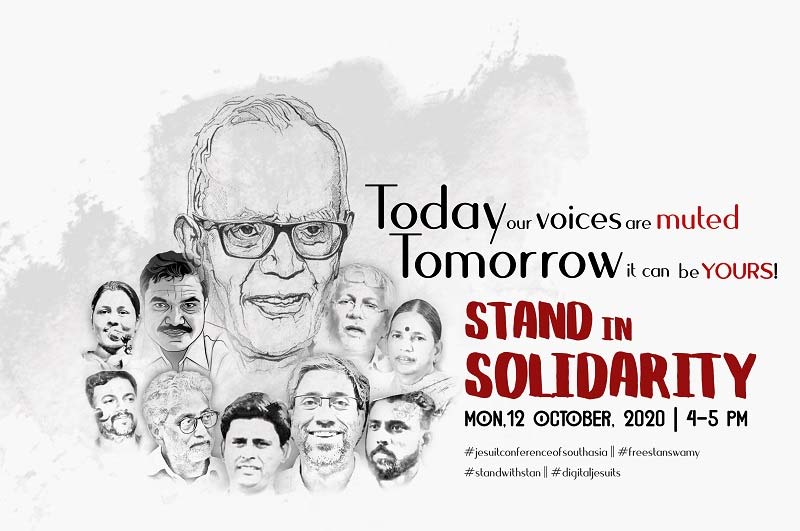
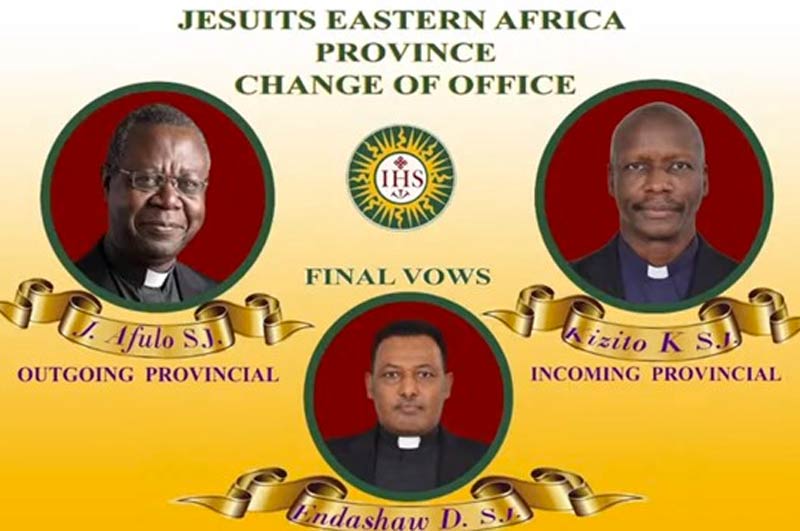
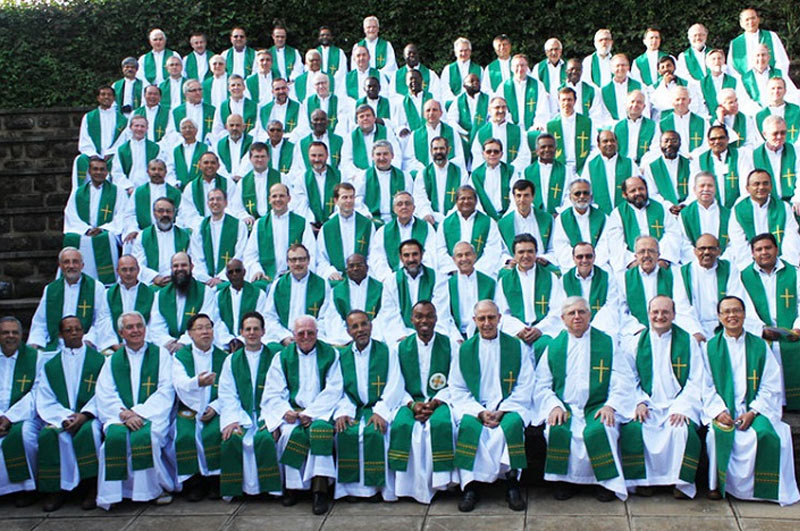
Select Payment Method
Pay by bank transfer
If you wish to make a donation by direct bank transfer please contact Fr Paul Hamill SJ treasurer@jesuits.africa. Fr Paul will get in touch with you about the best method of transfer for you and share account details with you. Donations can be one-off gifts or of any frequency; for example, you might wish to become a regular monthly donor of small amounts; that sort of reliable income can allow for very welcome forward planning in the development of the Society’s works in Africa and Madagascar.
Often it is easier to send a donation to an office within your own country and Fr Paul can advise on how that might be done. In some countries this kind of giving can also be recognised for tax relief and the necessary receipts will be issued.


